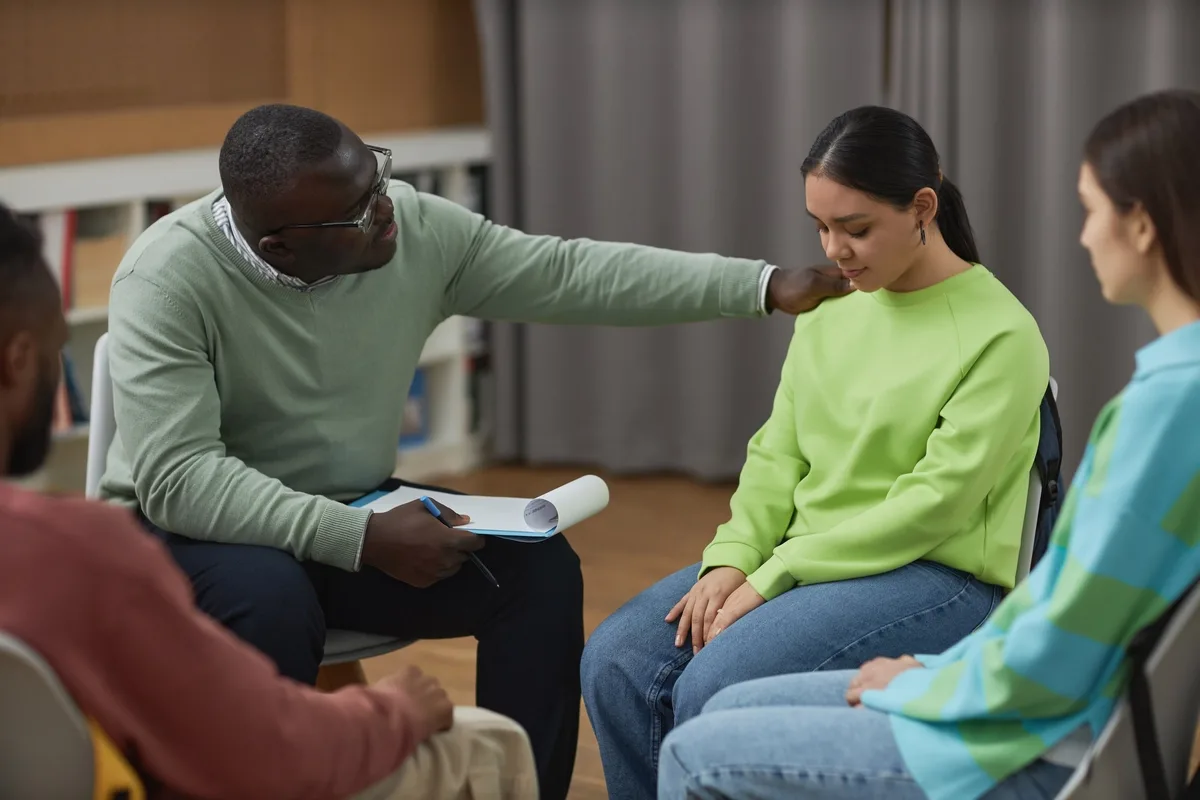24/7 Helpline:
(866) 899-221924/7 Helpline:
(866) 899-2219
Learn more about Bipolar Disorder Treatment centers in Sedgwick County
Bipolar Disorder Treatment in Other Counties

Other Insurance Options

Optima

Absolute Total Care

Multiplan

Covered California

CareSource

Coventry Health Care

Providence

State Farm

UMR

American Behavioral

PHCS Network

Kaiser Permanente

Aetna

Cigna

Choice Care Network

Holman Group

Sutter

Self-pay options

Group Health Incorporated

EmblemHealth

Dick Van Dyke Addiction Treatment Center
Dick Van Dyke Addiction Treatment Center offers inpatient treatment for individuals with alcohol and...
















Centennial Mental Health Center
Centennial Mental Health Center is a private rehab located in Julesburg, Colorado. Centennial Mental...











